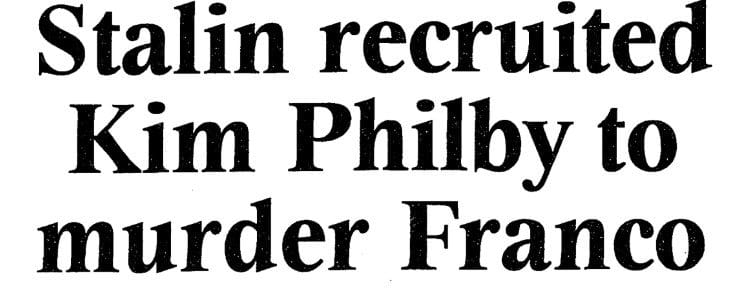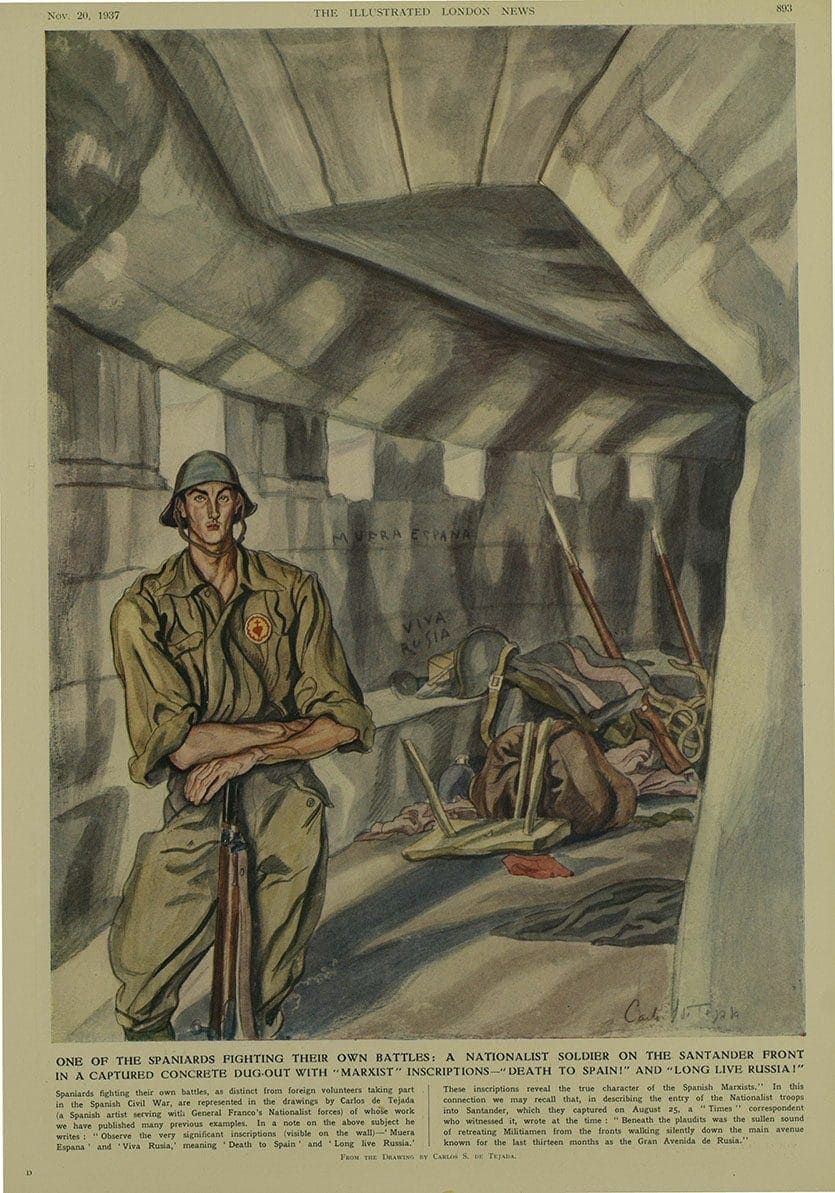By Rory Herbert, Gale Ambassador at the University of Portsmouth
Rafael Merry del Val (1865-1930) remarked in his manuscript on the Spanish Situation, written for Chatham House and accessed via Gale’s online archive, that Lenin viewed Spain as imperative to the eventual success of the Bolshevik revolution [1]. It should come as no surprise then that both prior to and following the outbreak of the civil war, the Soviet Union maintained a great interest in the outcome of this nation.
The 1937 Survey of International Affairs helps to shed light on this and identifies the reasons why Spain was considered such a priority in advancing Bolshevik ideas. The nation itself was largely in the same position as pre-revolution Russia, possessing a poverty-stricken populace, a detested aristocracy, and an embittered industrial proletariat [2]. As a result, the Soviets were actively involved in Spanish politics in the years leading up to the civil war and actively propagated slogans promoting ideas of world revolutions and global movements to help inspire Spanish communists.

In fact, the surge of propaganda and communist ideals experienced by Spain was so prominent that De Merry del Val identifies journalists who visited Spain and subsequently stated that “in no country in the world have we seen such a quantity of Bolshevist Literature” [3]. Unsurprisingly then, following the outbreak of war, Stalin issued a 1.5% levy on worker’s wages throughout the Soviet Union, alongside demonstrations across the country, hoping to inform the citizens of the Spanish issue [4]. These funds were mobilised immediately to buy foodstuffs and help to financially assist the Popular Front.
Unlike German and Italian efforts, Russia refrained from actively sending infantry to the battlefield and, instead, kept the Popular Front regularly supplied with food, munitions and funds to help with their war effort. In fact, as many of the food sources for cities fell to nationalists, many industrial areas began to rely on the foodstuffs provided by the Russians during the war. Additionally, the munitions, instructors and technicians sent by the Russians helped to carry on the Popular Front war effort by providing the necessary skills and equipment needed to fight.

Finally, in order to justify their own involvement in the civil war (and in the Soviet’s defence they were certainly not the first to meddle here), they actively promoted and inflated German and Italian intervention within Spain as a reason for their need to get involved. These arguments were quickly picked apart by official commentators of the time, who considered these Russian attempts as a way to play France and Britain against Germany and, similarly, force them into an alliance with the Soviets.
While this is just a brief rundown of the various interactions between the Soviets and the Spanish during this period, much more information can be viewed relating to this in the Chatham House Online Archive. If your library has access to the archive; click here!
Featured Image Caption:
“One of the Spaniards Fighting Their Own Battles: A Nationalist Soldier on the Santander Front in a Captured Concrete Dug-Out with ‘Marxist’ Inscriptions—’Death to Spain! ‘ and ‘Long Live Russia’.” Illustrated London News, 20 Nov. 1937, p. 893. The Illustrated London News Historical Archive, 1842-2003, http://tinyurl.galegroup.com/tinyurl/6YJha8. Accessed 18 May 2018.
[1] H. E. The Marquis De Merry Del Val. “The Situation in Spain: Why General Franco Rose.” RIIA/8/432. Chatham House, London. 09 Feb. 1937. p. 4. http://go.galegroup.com/choa/i.do?&id=GALE%7CCLWQIR164139098&v=2.1&u=&it=r&p=CHOA&sw=w&viewtype=Manuscript
[2] “(i) The Interests and Motives of the Powers.” Survey of International Affairs 1937. Vol. 2: The International Repercussions of the War in Spain (1936-7). London: Oxford University Press, 1938. p. 198.
http://go.galegroup.com/choa/i.do?&id=GALE%7CYDBETP497545213&v=2.1&u=uniportsmouth&it=r&p=CHOA&sw=w&viewtype=Manuscript
[3] De Merry Del Val, Situation in Spain, p. 5.
[4] Survey of International Affairs. Vol 2, p. 199
[5] Ewer, Norman. “The Consequences for Europe of the Spanish Civil War.” RIIA/8/468. Chatham House, London. 09 Nov. 1937. 6/11/15. p. 24.
http://go.galegroup.com/choa/i.do?&id=GALE%7CFZTDLQ854042830&v=2.1&u=uniportsmouth&it=r&p=CHOA&sw=w&viewtype=Manuscript


